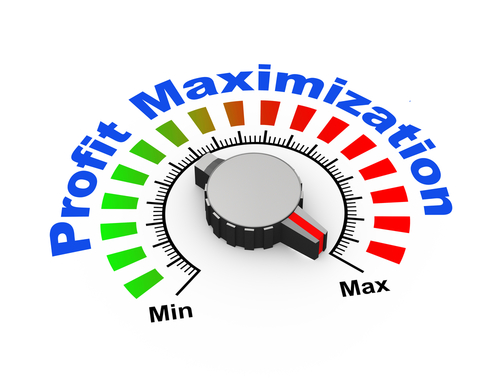As the managing partner or owner of a small law firm, your primary focus is likely on maximizing profitability while delivering exceptional service to your clients. One of the most critical decisions you’ll face is determining how to allocate your human resources—specifically, whether to hire an additional associate attorney or bring in an experienced paralegal. Both positions are integral to the functioning of a law firm, but when it comes to profitability, hiring an experienced paralegal can often offer more bang for your buck.
The Profit Equation: Understanding Costs vs. Revenue
To make a well-informed decision, it’s essential to break down the core elements that contribute to your firm’s profitability. This involves understanding both the costs associated with each role and the revenue they can generate.
1. Salary and Overhead Costs
Let’s start with the basics: compensation. Associate attorneys, especially those with a few years of experience, command significantly higher salaries than experienced paralegals. According to various industry reports, the average salary for an associate attorney in the United States can range from $75,000 to $150,000, depending on the region, experience level, and practice area. In contrast, experienced paralegals typically earn between $50,000 and $80,000 annually.
But salary is just one part of the equation. Associates often require substantial investment in continuing legal education (CLE), bar dues, bonuses, and potentially even partnership tracks. These costs can add up quickly, especially in a small firm where resources are more limited.
In contrast, the overhead costs associated with hiring a paralegal are generally lower. While paralegals also require ongoing training, the investment is usually less extensive and less costly than what’s needed for an associate. Moreover, paralegals do not have the same expectations for bonuses and career advancement, making their cost structure more predictable and manageable.
2. Billing Rates and Profit Margins
While associates can bill at higher hourly rates than paralegals, this doesn’t necessarily translate into higher profitability. The average billing rate for an associate attorney can range from $150 to $300 per hour, whereas paralegal billing rates typically fall between $100 and $200 per hour. At first glance, it might seem that an associate’s higher billing rate would naturally lead to greater revenue.
However, the key to understanding profitability lies in the profit margin—the difference between what you charge the client and what it costs you to deliver the service. Since the cost of employing a paralegal is significantly lower, the profit margin on paralegal services can often be higher, even if their billing rate is less than that of an associate.
For example, if you bill an associate’s time at $200 per hour and pay them a salary that averages out to $75 per hour (including benefits and overhead), your profit margin is $125 per hour. In contrast, if you bill a paralegal’s time at $150 per hour and pay them a salary that averages out to $40 per hour, your profit margin is $110 per hour. While the dollar amount of the margin is slightly lower for the paralegal, the percentage profit margin is actually higher, making the paralegal a more cost-effective resource for many tasks.
3. Utilization Rates: The Hidden Profitability Factor
Another critical aspect of profitability is utilization—the percentage of time a professional spends on billable work versus non-billable tasks. In many small law firms, associates are often tasked with a variety of non-billable duties, including legal research, document review, client communication, and even administrative tasks. These responsibilities, while necessary, reduce the associate’s billable hours and, consequently, their contribution to the firm’s revenue.
Experienced paralegals, on the other hand, are often more focused on billable tasks such as drafting documents, managing discovery, conducting research, and preparing for trial. Because paralegals are generally not responsible for higher-level legal strategy or client counseling, they tend to have higher utilization rates, meaning more of their time is spent on billable work. This higher utilization rate can translate into more consistent revenue generation and, therefore, higher profitability.
Leveraging Paralegals for Maximum Efficiency
One of the most significant advantages of hiring an experienced paralegal is the ability to delegate routine legal tasks, freeing up your attorneys to focus on higher-level work that commands premium billing rates. This delegation not only improves your firm’s efficiency but also enhances the quality of service provided to clients.
1. Task Appropriateness and Delegation
Paralegals are well-equipped to handle a variety of tasks that are essential to a law firm’s operation but do not necessarily require the expertise of a licensed attorney. These tasks can include:
Drafting Legal Documents: Paralegals can draft a wide range of documents, including contracts, pleadings, discovery responses, and correspondence, often with minimal supervision. This allows attorneys to review and finalize documents more quickly, increasing the firm’s capacity to take on additional cases.
Legal Research: Paralegals are skilled in conducting legal research, which can be time-consuming for attorneys. By delegating this work to a paralegal, attorneys can focus on applying the research to develop case strategies and provide legal advice.
Client Communication: Paralegals can manage routine client communication, including providing case updates, gathering information, and answering questions about procedural matters. This improves client satisfaction and allows attorneys to concentrate on more complex client interactions.
Document Management and Organization: Paralegals are experts in managing large volumes of documents, whether in litigation, real estate, or corporate transactions. Their ability to organize and maintain documents ensures that attorneys have quick and easy access to the information they need, reducing the risk of errors and increasing efficiency.
2. Improved Client Service and Satisfaction
Clients expect their legal matters to be handled efficiently and effectively. By leveraging the skills of an experienced paralegal, your firm can provide a higher level of service without increasing costs. Paralegals can often complete tasks more quickly than attorneys, as they are not burdened with the broader responsibilities of case management and legal strategy. This efficiency can lead to faster turnaround times, which clients appreciate and are often willing to pay a premium for.
Additionally, paralegals can help ensure that your firm remains responsive to client needs. By managing routine communication and administrative tasks, paralegals free up attorneys to address more pressing client concerns, ultimately leading to higher client satisfaction and retention.
The Flexibility and Scalability of Paralegals
One of the unique advantages of hiring a paralegal is the flexibility and scalability they offer to your firm. Because paralegals can handle a broad range of tasks, they can be easily integrated into various practice areas, making them a versatile asset. This flexibility is particularly valuable for small firms that need to adapt quickly to changes in client demand or workload.
1. Scaling Operations Without Significant Overhead
Hiring an associate attorney often involves a long-term commitment and significant overhead. In contrast, bringing in an experienced paralegal can be a more flexible and scalable option. Paralegals can be hired on a full-time, part-time, or even contract basis, depending on your firm’s needs. This scalability allows your firm to manage workload fluctuations without the financial strain of maintaining a full-time attorney on staff.
For example, if your firm experiences a temporary increase in cases due to a high-demand period, you can bring in contract paralegals to handle the additional work. This approach not only helps you manage the increased workload but also prevents burnout among your full-time staff, leading to a more sustainable work environment.
2. Enhancing Profitability Through Strategic Staffing
By strategically staffing your firm with a mix of attorneys and experienced paralegals, you can maximize profitability while maintaining high standards of client service. Paralegals can take on the bulk of routine legal work, allowing your attorneys to focus on tasks that require their expertise. This division of labor ensures that each team member is working at their highest and best use, optimizing your firm’s overall productivity.
Conclusion: The Strategic Advantage of Hiring Paralegals
As a small law firm’s managing partner or owner, your primary goal is to maximize profitability while delivering exceptional service to your clients. Hiring an experienced paralegal offers a strategic advantage by providing cost-effective support, improving utilization rates, and enhancing the efficiency of your legal team. While associate attorneys are essential for complex legal work and long-term growth, paralegals can deliver a higher profit margin on the work they perform, making them a valuable asset to your firm’s bottom line.
In today’s competitive legal market, it’s essential to consider the most efficient use of your firm’s resources. By incorporating experienced paralegals into your team, you can improve profitability, enhance client satisfaction, and position your firm for long-term success.




Comments are closed